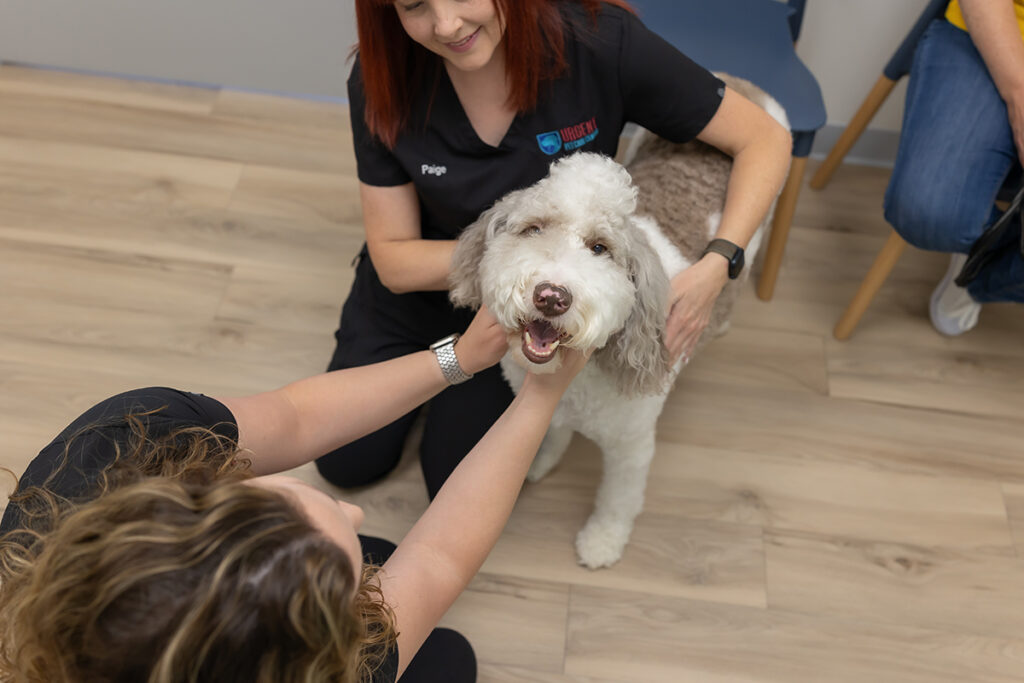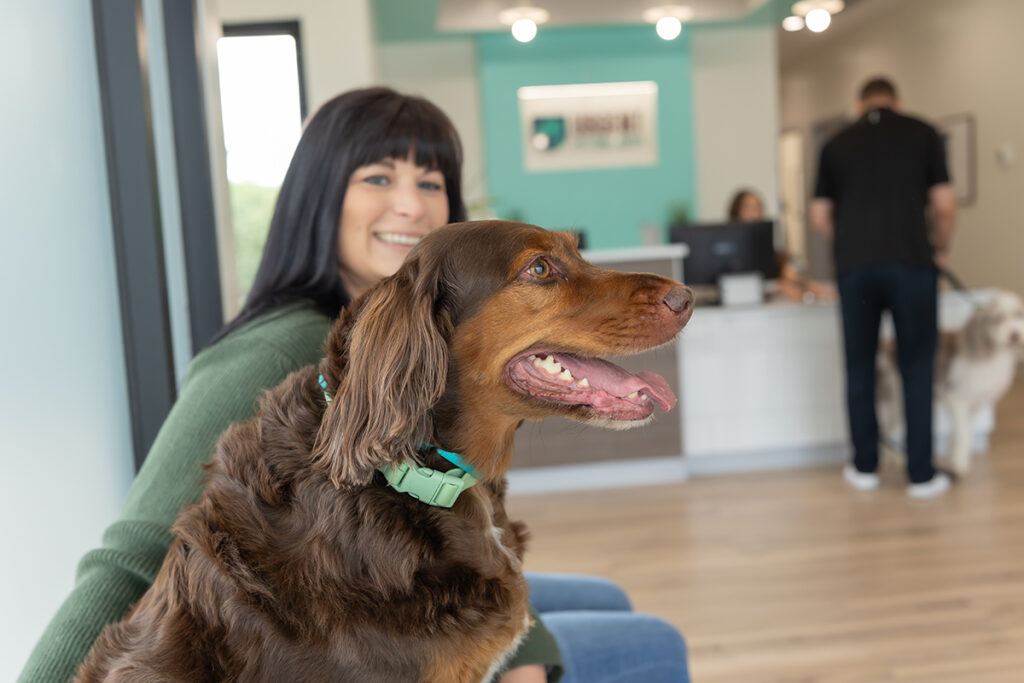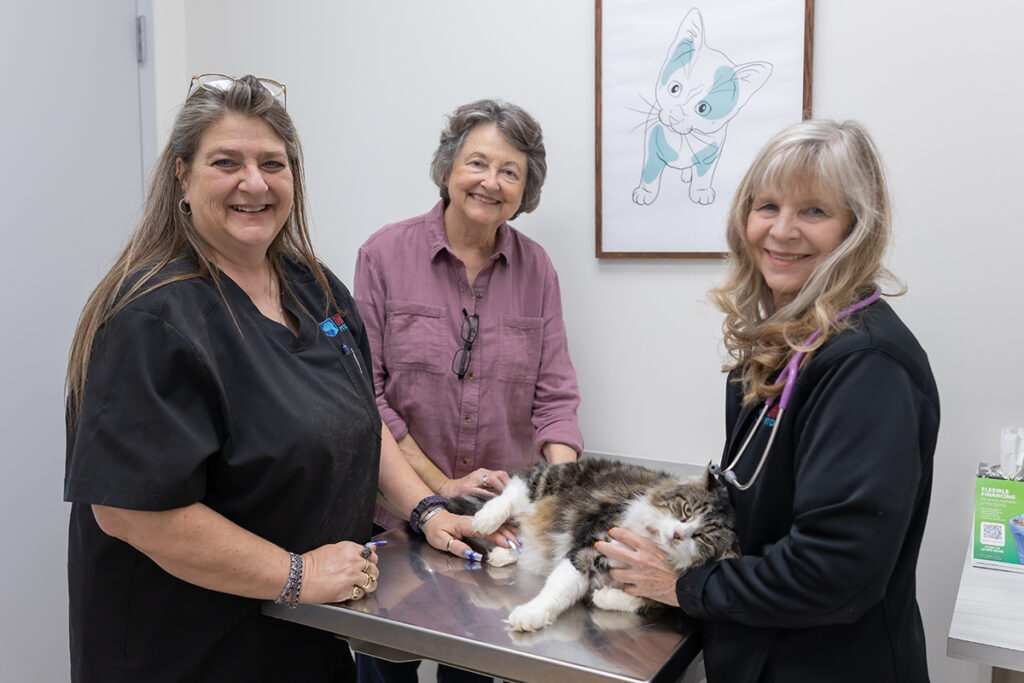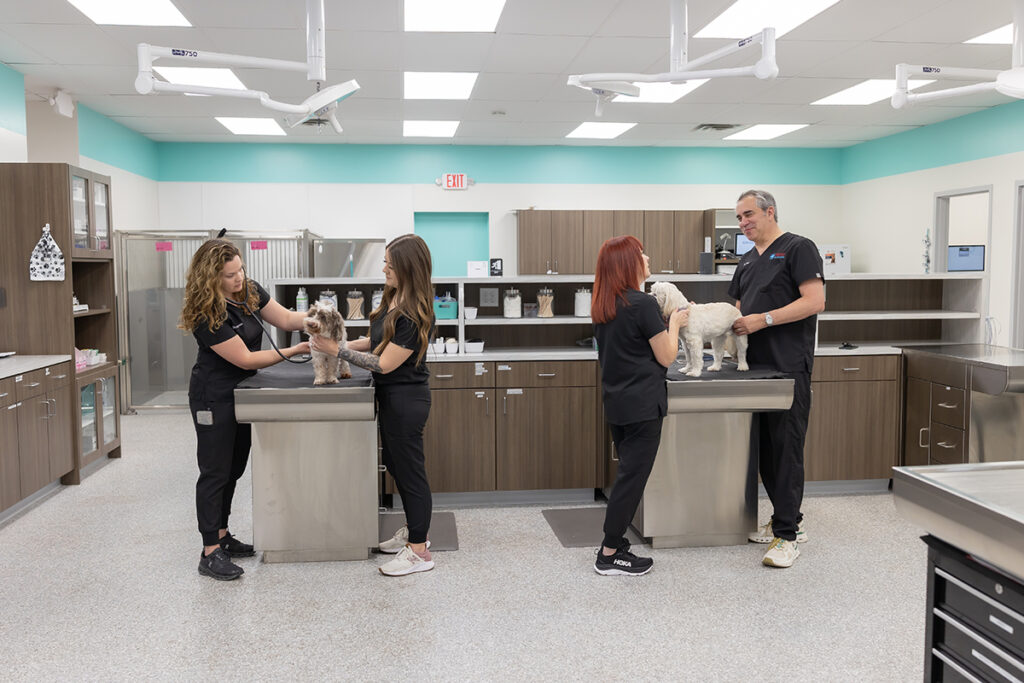Pet Emergency & Urgent Care Services
Not every situation needs to be seen at a 24-hour specialty ER clinic. We’re here for those unexpected moments when your pet needs fast, expert care – without the emergency vet price tag.
Open Evenings & Weekends
After-Hours Vet in OKC Metro
Located in Edmond, Oklahoma, we serve pet owners across the Oklahoma City metro.
Your pet doesn’t follow a 9–5 schedule, and neither do we. As an after-hours vet in OKC, we’re open evenings and weekends to handle sudden illnesses or minor injuries that can’t wait until morning. Our walk-in clinic offers expert care without the long wait times or costs of a traditional emergency room.
Give us a call!

Is my pet experiencing an emergency?
We understand that it can be difficult to know if your pet is experiencing an emergency.
Whatever your concerns are for your pets health and well being, bring them to URGENT PET CARE CENTER, we’re always happy to help. After an initial evaluation by one of our experienced veterinarians, we’ll sit down with you to create a personalized care plan for your pet.
With more affordable pricing, shorter wait times, and extended evening and weekend hours, our clinic offers fast, compassionate care. If your pet needs prompt attention but isn’t in a life-threatening situation, we’re here to help.
If you’re uncertain whether your pet needs emergency veterinary care, feel free to visit our office. We can help stabilize your pet and provide the immediate guidance you need.
Common Cases We See
- Minor Wounds
- Limping
- Ear Infection
- Eye Redness & Discharge
- Decreased Appetite
- Persistent Coughing or Sneezing
- Allergic Reactions
- Skin Rashes
- Vomiting & Diarrhea
Urgent Care Services
Urgent pet situations require prompt, compassionate care. We’re here to provide the attentive care your pet needs when it matters most.
Diagnostics
At Urgent Pet Care Center, we have state-of-the-art diagnostic lab and imaging tools right ready to get to the bottom of your pet’s situation!
Euthanasia
It’s never easy to say goodbye. We provide pet euthanasia services in a calm and comfortable environment, treating you and your pet with care.
What to Expect
Your Pet Emergency Visit
Your appointment will be curated to your pet’s needs.
Here’s what you can expect:
- Walk-in consultations
- Fast triage process to assess urgency
- Treatment options explained upfront
- Transparent pricing and next-step recommendations
- Follow-up care guidance or referrals if needed

Reviews from Pet Parents
As a walk-in vet in Edmond, Oklahoma, we’ve had the honor of supporting hundreds of Oklahoma City metro families and individuals, treating their pets with urgency and compassion.
But don’t just take it from us! Hear what fellow pet parents have to say about the Urgent Pet Care experience.
Get Involved

Careers
Are you a veterinarian, vet tech, or vet assistant who is passionate about your local community and the pets within it? Urgent Pet Care Center may be just the place for you! Explore our careers page to see current openings.

Resources
Curious to know how to best care for your pet? Our resources page is packed with blogs, valuable articles, and other tools to help you care for your pet with confidence.
Community Opportunities
Do you have students interested in learning more about what it means to be a vet? Have a team of pet-sitting pros needing to know pet health basics?
Our team loves getting out into the community to connect with our neighbors and teach others about the importance of pet health and the job we love most.
Give us a call at 405-870-8722 for the quickest response or fill out our contact form to inquire about partnership opportunities!

Frequently Asked Questions
How much can I expect to pay?
Your initial consultation will cost $100. Additional fees depend on the type of care we provide to your pet. An itemized treatment plan will be presented after the doctor’s examination. Due to the nature of medical emergencies, its not possible to provide a thorough estimate without an examination.
Do I need an appointment?
No! An appointment is not necessary. We are a WALK-IN veterinary clinic. Pets are seen on a first-come, first-served basis, with priority given to those needing more urgent care.
What are my payment options?
We accept all major credit cards and cash as well as CareCredit and Scratch Pay. Payment is due at the time of service. We pride ourselves on being a reasonably priced urgent pet care and are transparent about pricing.
Do you accept pet insurance?
If your pet is covered by a Pet Insurance policy, we will happily work with you and the insurance company to provide the necessary documents for owner reimbursement. Please note: We DO NOT bill your pet’s insurance company. You are still responsible for payment in full at the time service is rendered.
If your pet is covered by Trupanion Pet Insurance, we are a part of their VetDirect Pay program.
What if my pet needs more than what Urgent Pet Care Center can provide?
In the event your pet’s illness or injuries require more care than we can provide (i.e. overnight hospitalization) we will discuss referral to a 24-hour Specialty facility. We work closely with the Veterinary Emergency Referral Center of Norman, our partnership allows for a smooth and timely transition of care.
My primary veterinarian is closed. Can you fill my pet’s prescriptions?
We cannot fill prescriptions without an exam. In the event you run out of an essential medication for your pet and your primary care vet’s office is closed, your pet will need to be examined and we will fill up to 5 days worth of medication.
Does my primary vet know that I’ve visited urgent care?
Urgent Pet Care Center utilizes an online portal so your pet’s veterinarian has access to the complete medical record. Your primary care veterinarian will receive an email after your pet is discharged, informing them of your pet’s visit to the Urgent Care Center.
Do you offer end-of-life care?
Saying goodbye is never easy. We believe in providing compassionate care especially in those final moments. If your pet’s quality of life is declining, we offer end-of-life care. Cremation services are offered through Pet Passages.
